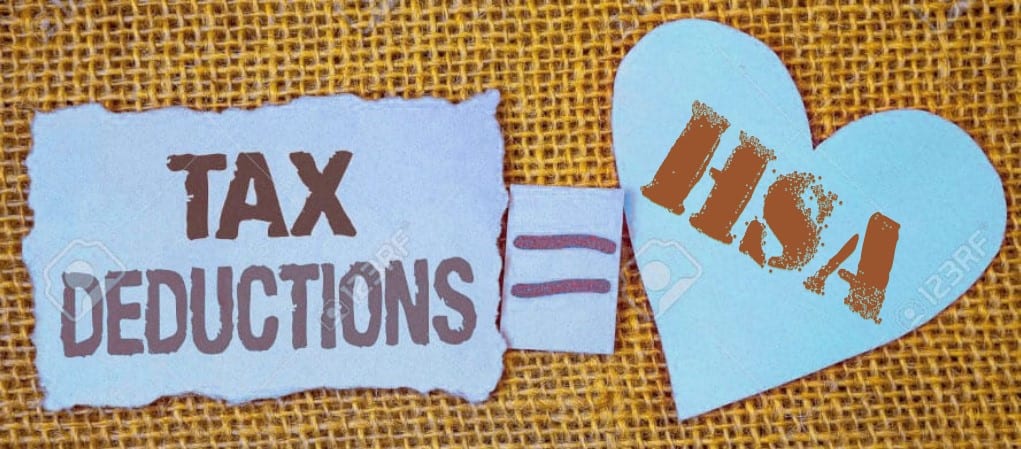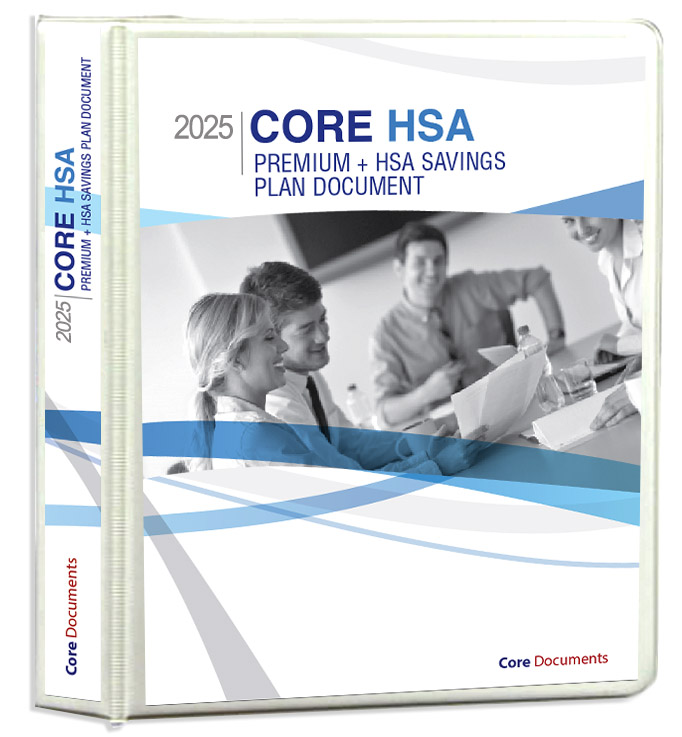Home / Blog / Employer HSA contribution: Comparability or nondiscrimination rules?
Employer HSA contribution: Comparability or nondiscrimination rules?
Employer contributions to employees’ Health Savings Accounts (HSA) are permitted with a Section 125 Plan or directly, but employers must know whether nondiscrimination testing or comparability rules apply.

HSAs grow in popularity
Health Savings Accounts (HSA) are recognized as a fantastic investment vehicle for individuals and their families. That’s because it allows use of a more affordable high-deductible health plan (HDHP) coupled with a tax-free savings account to help cover higher deductibles and copays, and any unused balance stays in the employee-owned account because there is no use-it-or-lose-it surrender rule.
Employers may contribute to employee-owned HSAs whether the account is part of the employer-sponsored Section 125 Cafeteria Plan HSA or setup directly by the employee.
Direct Employer Contributions (not through a Section 125 Plan)
The best way for an employer to make contributions to employee-owned HSAs is through a Section 125 Cafeteria Plan; however, direct employer contributions are permitted.
- Employers making direct contributions must follow comparability rules (below).
- Failure to do so may result in a 35 tax percent penalty.
- Matching employer contributions may only be offered through a Section 125 Cafeteria Plan.
Comparability Rules
Employers must make “comparable” contributions to employees’ HSAs. That means the amount of employer contribution available must be available to all eligible employees as either an equal dollar amount or equal percentage of the deductible for the high deductible health plan.
Employers may only differentiate in the amount or means of contribution among three categories of employees:
- Full-time vs. part-time employment;
- HDHP coverage class (self only, self plus one, self plus two, or self plus three or more); and,
- HSA-eligible versus non-eligible (per plan participation rules stated in the Plan Document).
Another exception to the comparability rules allows employers to contribute more to the HSAs of non-highly compensated employees.
For this purpose, the definition of “highly compensated employee” is based on the definition used for qualified retirement plans.
Employers should consult with their tax adviser or legal counsel to make sure they comply.
Employer Contributions through a Section 125 Plan
Employers may choose to make contributions to their employees’ HSAs as part of a Section 125 plan (also known as a “cafeteria plan” or a “salary reduction plan”). Employers realize greater savings by allowing their employees to contribute on a “pre-tax” basis to their own HSA via payroll deduction. Employer and employee contributions may be combined up to the annual IRS contribution limit.
Here are some of the advantages to an employer-sponsored HSA:
- Employer contributions can generally be excluded from federal income tax, Social Security tax, Medicare tax, FUTA, and state unemployment taxes (in most states).
- Employers also derive HSA tax benefits by not paying Social Security tax, Medicare tax and FUTA on employees’ contributions.
- Employers contributing through a Section 125 plan are not subject to the comparability rules described above, but are subject to HSA nondiscrimination testing rules that ensure contributions do not favor highly compensated employees.
- If an employer chooses to offer matching contributions, it must be done through a Section 125 plan.

(Deluxe Binder Version)
Get 8% bonus tax savings on HSAs in a Section 125 Plan
Core Documents provides employers with everything they need to establish an IRS- and DOL-compliant Section 125 with the HSA Savings module plan in PDF format for just $129. This cost reflects a one-time setup fee, not an annual charge. For an additional $50, employers can choose the Deluxe Binder option that includes the PDF email version plus a printed plan document in a 3-ring binder.
No annual fee — Core Documents does not require an annual renewal fee to maintain your plan document package. A plan document only needs to be updated when there are changes in the plan or in the law that make it necessary. We will notify you when there are sufficient changes in the Code to require amending and restating your Plan and ask that you keep us informed when there is a change to your plan. You can amend and update your plan document anytime, at a discounted fee and only when necessary, which is the most cost-effective way to maintain it.
Fast Service — Most orders placed by 3 PM are returned via email the same day, Monday through Friday. Weekend orders are sent out Monday morning. Plan document packages are processed in the order received. During our busiest months (December, January, and February), the rush order fee (see order form) marks your document to be processed immediately.
Refund Policy: Goods and services provided by Core Documents, Inc. are non-refundable upon receipt. Orders cancelled prior to shipping are subject to a fee to cover the cost of goods and services provided during the review, draft, and preparation of your order.
The Trusted Source of Affordable Benefit Plan Documents for over 20 Years.
Core Documents is the country’s leading provider of cost-effective, tax-saving benefit plan documents for Section 125 Cafeteria plans and Health Reimbursement Arrangements. The Trusted Source since 1997, thousands of satisfied agents and employer groups nationwide rely upon Core Documents for free plan design consulting services, plan document updates, ERISA Wrap SPDs, and administration services.
Documentation
From: https://www.law.cornell.edu/cfr/text/26/54.4980G-5
26 CFR 54.4980G-5 – HSA comparability rules and cafeteria plans and waiver of excise tax.
§ 54.4980G-5 HSA comparability rules and cafeteria plans and waiver of excise tax.
Q-1: If an employer makes contributions through a section 125 cafeteria plan to the HSA of each employee who is an eligible individual, are the contributions subject to the comparability rules?
A-1: (a) In general. No. The comparability rules do not apply to HSA contributions that an employer makes through a section 125 cafeteria plan. However, contributions to an HSA made through a cafeteria plan are subject to the section 125 nondiscrimination rules (eligibility rules, contributions and benefits tests and key employee concentration tests). See section 125(b), (c) and (g) and the regulations thereunder.
(b) Contributions made through a section 125 cafeteria plan. Employer contributions to employees’ HSAs are made through a section 125 cafeteria plan and are subject to the section 125 cafeteria plan nondiscrimination rules and not the comparability rules if under the written cafeteria plan, the employees have the right to elect to receive cash or other taxable benefits in lieu of all or a portion of an HSA contribution (meaning that all or a portion of the HSA contributions are available as pre-tax salary reduction amounts), regardless of whether an employee actually elects to contribute any amount to the HSA by salary reduction.
Q-2: If an employer makes contributions through a cafeteria plan to the HSA of each employee who is an eligible individual in an amount equal to the amount of the employee’s HSA contribution or a percentage of the amount of the employee’s HSA contribution (matching contributions), are the contributions subject to the section 4980G comparability rules?
A-2: No. The comparability rules do not apply to HSA contributions that an employer makes through a cafeteria plan, the contributions are not subject to the comparability rules of section 4980G. However, contributions, including matching contributions, to an HSA made under a cafeteria plan are subject to the section 125 nondiscrimination rules (eligibility rules, contributions and benefits tests and key employee concentration tests). See Q & A-1 of this section.
Q-3: If under the employer’s cafeteria plan, employees who are eligible individuals and who participate in health assessments, disease management programs or wellness programs receive an employer contribution to an HSA and the employees have the right to elect to make pre-tax salary reduction contributions to their HSAs, are the contributions subject to the comparability rules?
A-3: (a) In general. No. The comparability rules do not apply to employer contributions to an HSA made through a cafeteria plan. See Q & A-1 of this section.
Examples.
The following examples illustrate the rules in this § 54.4980G-5. The examples read as follows:
Example 1.
Employer A’s written cafeteria plan permits employees to elect to make pre-tax salary reduction contributions to their HSAs. Employees making this election have the right to receive cash or other taxable benefits in lieu of their HSA pre-tax contribution. The section 125 cafeteria plan nondiscrimination rules and not the comparability rules apply because the HSA contributions are made through the cafeteria plan.
Example 2.
Employer B’s written cafeteria plan permits employees to elect to make pre-tax salary reduction contributions to their HSAs. Employees making this election have the right to receive cash or other taxable benefits in lieu of their HSA pre-tax contribution. Employer B automatically contributes a non-elective matching contribution or seed money to the HSA of each employee who makes a pre-tax HSA contribution. The section 125 cafeteria plan nondiscrimination rules and not the comparability rules apply to Employer B’s HSA contributions because the HSA contributions are made through the cafeteria plan.
Example 3.
Employer C’s written cafeteria plan permits employees to elect to make pre-tax salary reduction contributions to their HSAs. Employees making this election have the right to receive cash or other taxable benefits in lieu of their HSA pre-tax contribution. Employer C makes a non-elective contribution to the HSAs of all employees who complete a health risk assessment and participate in Employer C’s wellness program. Employees do not have the right to receive cash or other taxable benefits in lieu of Employer C’s non-elective contribution. The section 125 cafeteria plan nondiscrimination rules and not the comparability rules apply to Employer C’s HSA contributions because the HSA contributions are made through the cafeteria plan.
Example 4.
Employer D’s written cafeteria plan permits employees to elect to make pre-tax salary reduction contributions to their HSAs. Employees making this election have the right to receive cash or other taxable benefits in lieu of their HSA pre-tax contribution. Employees participating in the plan who are eligible individuals receive automatic employer contributions to their HSAs. Employees make no election with respect to Employer D’s contribution and do not have the right to receive cash or other taxable benefits in lieu of Employer D’s contribution but are permitted to make their own pre-tax salary reduction contributions to fund their HSAs. The section 125 cafeteria plan nondiscrimination rules and not the comparability rules apply to Employer D’s HSA contributions because the HSA contributions are made through the cafeteria plan.
Q-4: May all or part of the excise tax imposed under section 4980G be waived?
A-4: In the case of a failure which is due to reasonable cause and not to willful neglect, all or a portion of the excise tax imposed under section 4980G may be waived to the extent that the payment of the tax would be excessive relative to the failure involved. See sections 4980G(b) and 4980E(c).